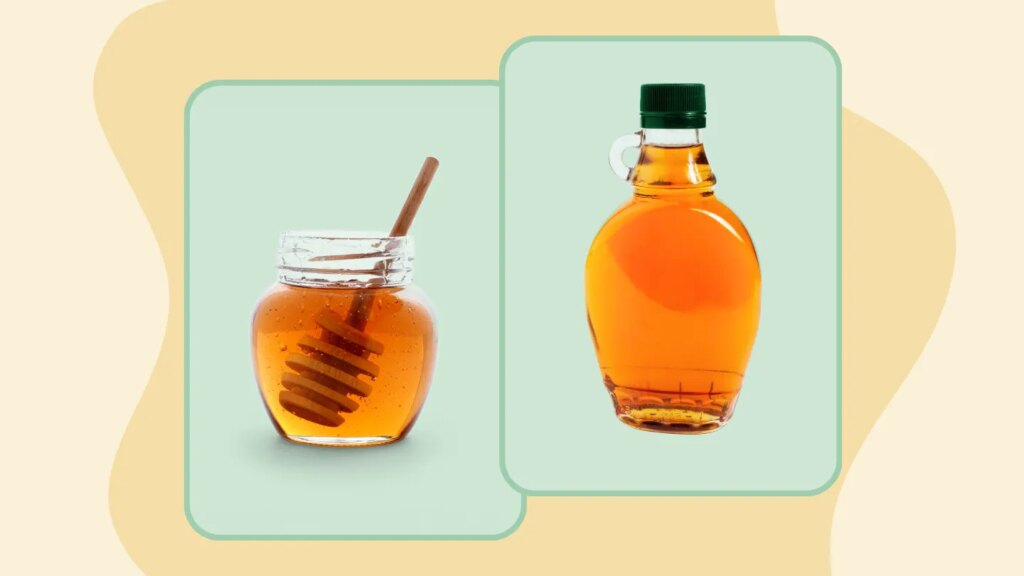Although maple syrup is mostly sugar (and a type of added sugar, albeit it a natural one), it may have some health benefits in the form of trace minerals and antioxidants (compounds that help neutralize cell-damaging substances known as free radicals). “Maple syrup contains polyphenols such as quebecol and minerals like manganese and riboflavin,” Sarris says. Lab and animal studies suggest that these compounds may have antioxidant and anti-inflammatory benefits.
But human research is limited, and at typical serving sizes, maple syrup isn’t considered a meaningful source of antioxidants or protective nutrients, Sarris adds.
Maple syrup also has the benefit of a lower glycemic index (GI) than sweeteners like white sugar. (The glycemic index is a 1-to-100 scale that measures how rapidly foods elevate blood sugar.) Maple syrup’s GI is 54, whereas white sugar’s is 80. This means that maple syrup won’t raise blood sugar as quickly as white sugar. But the GI of maple syrup and honey are comparable: honey’s glycemic index is 50.
Sarris notes, too, that maple syrup is a good choice for people on a vegan or plant-based diet, since it’s completely derived from plants. Honey, on the other hand, is considered an animal-derived sweetener.

